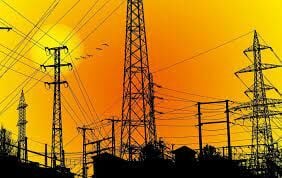Banpu eyes free power trade system amidst rising Thai electricity costs

In the face of rising electricity bills, a new opportunity is emerging for a free power trade system in Thailand, as spotted by Banpu Power Plc, the power generation arm of energy conglomerate Banpu Plc. Expecting a worldwide shift in electricity markets, the company, under Kirana Limpaphayom, its CEO, is poised to take advantage of this imminent change.
The combined effect of advancing digital technology, mounting climate change concerns, and declining costs for developing renewable power plants fuel this progression. Additionally, the hike in energy prices due to the Russia-Ukraine conflict is facilitating this transition.
The Thai population, both households and entrepreneurs, are showing an increased preference towards energy derived from rooftop solar panels as a counteraction to expensive electricity costs. Banpu is planning to pivot more towards the power trade business while further pushing its branches into energy solutions and electric vehicle sectors, Bangkok Post reported.
A potential market is visualised by Kirana where electricity sellers and energy types are chosen freely by customers based on their individual needs and financial situations. Similar to the retail oil market, the aim is for businesses to be able to freely trade electricity generated from sources like solar panels without intervention from the state-run Electricity Generating Authority of Thailand or the government’s power distribution divisions, the Metropolitan Electricity Authority and the Provincial Electricity Authority.
Kirana said…
“Some customers may opt to buy renewable power even if it is more expensive than electricity generated by fossil fuels, while others may be more price-sensitive.”
Relating the new power market to the oil retail market, the CEO compares the scenario to motorists freely choosing their filling station and fuel type. He presses the government to champion the free power trade system, as it will eventually lead to more competition and reduced prices for consumers.
With the push for broad adoption of clean energy, the establishment of a new power market is on the horizon, although gradual. Kirana believes digital technology will assist consumers in buying electricity via their smartphones.
Drawing on Prime Minister Prayut Chan-o-cha’s commitment at the 2021 Glasgow 26th UN Climate Change Conference to aggressively nurture climate change solutions, the CEO anticipates a bright future for free power trading in Thailand, boosted by technological innovations and high electricity costs.
In 2019, energy authorities began experimenting with new technology capable of promoting power trading systems. Companies were invited by the Energy Regulatory Commission (ERC) to research sandbox in the pursuit of energy solutions. Despite the trial stage of the technologies explored, Kirana is confident they are fit for use in the power sector. Consequently, he believes the free power trade can be initiated in industries that are technologically prepared before expanding to include additional sellers and buyers.
Anticipating variation in each country’s transition time to a new power trade, depending on factors such as fuel supply and national energy policies, Kirana reflected upon Banpu’s 20 years of experience in the power business. Each country demonstrates different periods of deregulation in its electricity trade, factoring in available fuel types, energy demand, national energy management plans and per capita income.
Expressing interest in expanding its investments into multiple countries like Japan, the US, Australia, China, Indonesia, and Vietnam, Banpu aims to acquire new clean energy development projects. Meanwhile, Thailand’s timeline for a full transition to free power trade remains vague even as the Thai government commences with relevant policies and sets a 50% target for renewable energy’s contribution to the country’s total fuel usage for electricity generation by 2036.
Kirana said…
“The hope is our transition period will give consumers maximum benefits in terms of power stability, economic viability and better protection of the environment.”
In parallel, Banpu continues to advance its energy technology and solution projects, teaming up with Altotech Global Co and France-based Eurazeo. Via its energy technology branch Banpu Next, the company acquired a quarter share in Altotech and launched Mobility as a Service, an electric vehicle rental service aligning with the sharing economy trend.
The company’s recent launch, MuvMi, an on-demand electric tuk tuk service, primarily aims to cater to commuters in Bangkok heading to and from minor roads to mass transit train routes. Kirana concluded by saying passengers sharing a common route can also share tuk tuks.
Latest Thailand News
Follow The Thaiger on Google News:


























